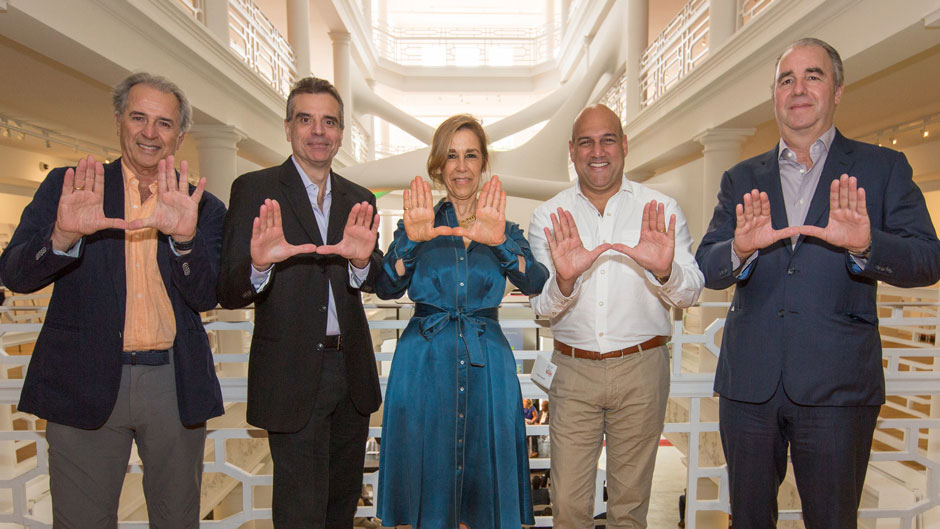The University of Miami Center for Computational Science (CCS) and the Fastrack Institute have signed a memorandum of understanding to concentrate on initiatives aimed to accelerate the adoption and implementation of exponential technologies with the potential to improve quality of life by delivering innovation and fostering economic competitiveness and sustainability in Latin America and the Caribbean. It will focus on big data research and analytics in the areas of smart cities, mobility, transformational healthcare technologies, education, energy and environment.
"We are excited to form this strategic alliance with the Fastrack Institute. This relationship will help foster collaboration with public and private sectors to bring forward new, innovative solutions to address pressing problems," said Nick Tsinoremas, director of the University’s Center for Computational Science.
“UM CCS and the Fastrack Institute will play a key role as part of the CCS for the Americas—the virtual platform—which brings together academia and research agencies to focus on big data research and analytics in the areas of smart cities, mobility, transformational healthcare technologies, education, energy and environment,” added Tsinoremas.
Salim Ismail and Dr. Maurice R. Ferré, co-founders of Fastrack Institute, welcome the forward-thinking union and discussed the impact of the multifaceted approach to global problem solving.
“I am thrilled about this relationship, one that will help us advocate a mindset change into an exponential way of thinking for the entire region. The University of Miami’s vocation as a hemispheric institution provides the right venue for us to reach out to societies in the Americas with tools and infrastructure of incredible breadth and scope,” said Ismail.
“The ability to work with the University of Miami’s Center for Computational Science on matters related to big data analytics on health-related issues for the hemisphere is a unique opportunity for us. Innovations In technology in biotech and genetics combined with massive computational capacity for analysis comes at the center of our objectives. We rejoice and welcome this alliance,” said Ferré.
To expand upon the reach of the partnership, Fastrack’s CEO and co-founder, Rodrigo Arboleda, spoke about the significance of working with researchers and experts from across the University.
“As an architect and as former head of several non-profit entities, the importance of being able to use exponential technologies and tools such as the ones available at the Center for Computational Science, is of monumental importance. With the University of Miami School of Architecture—as part of CCS Smart Cities Program —we have a golden opportunity of finding solutions to cities’ dilemmas, using big data analytics and other new tools in fields like mobility and of urban planning and design,” said Arboleda.
Established in 2007, the University of Miami Center for Computational Science provides the cyber infrastructure that addresses major research challenges. More than 1,500 faculty, researchers, staff and students utilize the center as a nucleus for collaboration.

